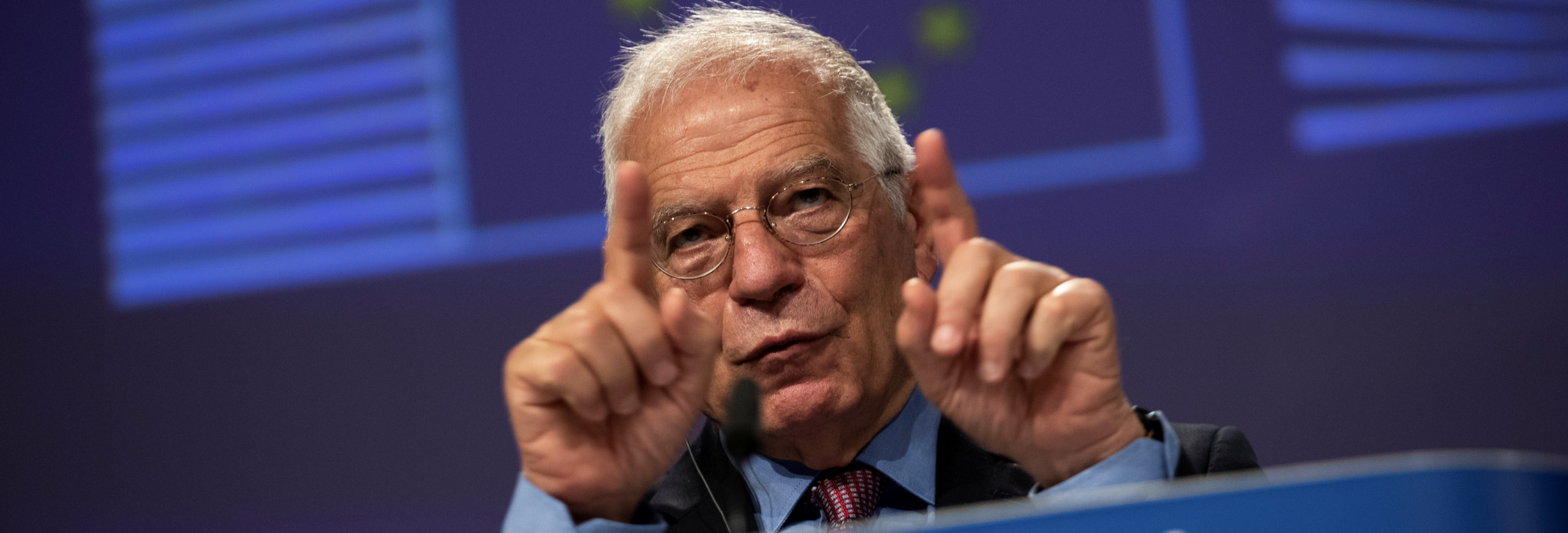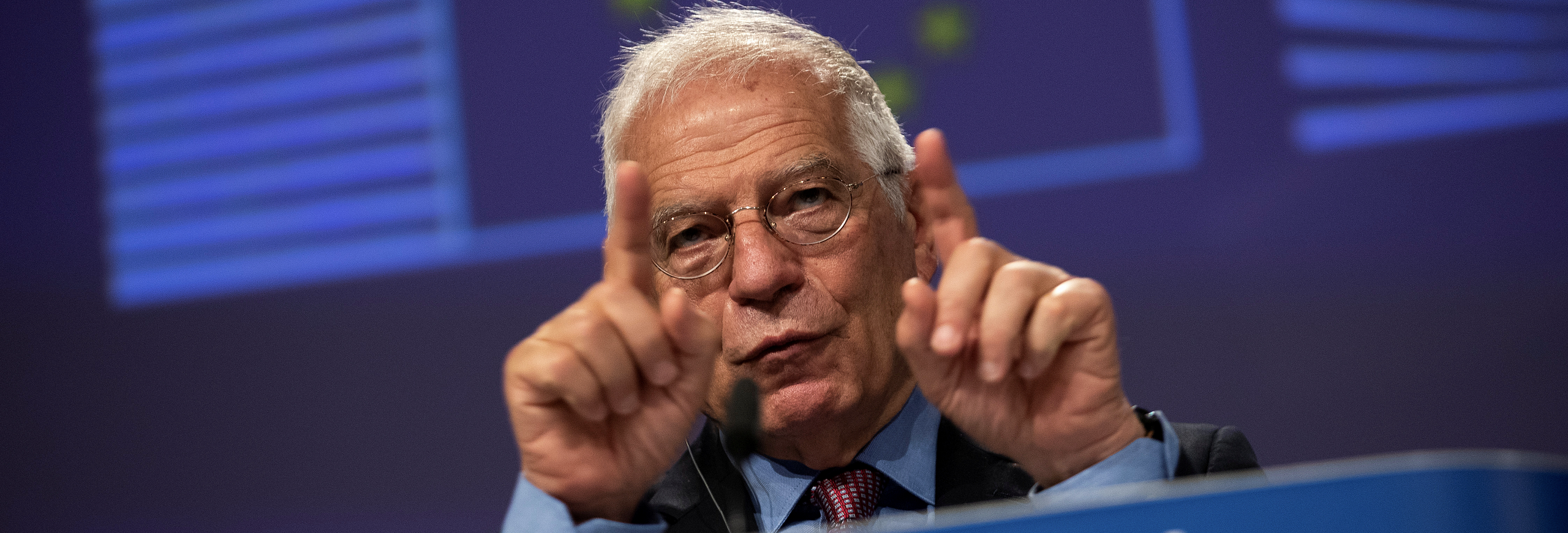Q&A: The EU’s latest response to disinformation as viewed by experts
How disinfo research professionals are reacting
Q&A: The EU’s latest response to disinformation as viewed by experts

How disinfo research professionals are reacting to the EU’s latest report

On June 10, 2020, the European Union issued another document tackling the problem of disinformation called “Tackling COVID-19 disinformation — Getting the facts right.” The Atlantic Council recently hosted European Commission Vice President Vera Jourova where she discussed this set of challenges in depth, as well as previewed this announcement.
We asked several leading experts on both sides of the Atlantic what they think about the 17-paged document, including:
→ Amb. Daniel Fried, Distinguished Fellow in the Atlantic Council’s Future Europe Initiative in Washington, DC;
→ Roland Freudenstein, Policy Director of the Wilfried Martens Centre in Brussels;
→ Clara Hanot, Advocacy Coordinator in EU Disinfo Lab in Brussels;
→ Jakub Janda, director of the European Values Center for Security Policy in Prague;
→ Jakub Kalenský, Senior Fellow in the Atlantic Council’s DFRLab in Prague.
→ Anna Pellegatta, Associate Director of the Atlantic Council’s DFRLab in Brussels;
DFRLab: What do you like the best about the communication; what, if anything, could really help?
Ambassador Fried: The Joint Communication is another solid piece of work by the EU in combatting disinformation. It builds on the EU’s Action Plan and Code of Practice and applies their policy outline to COVID-19. It’s a logical and needed next step. It calls out Russia and China for their engagement in COVID-19 related disinformation. The Joint Communication covers major areas of needed action: more support for civil society/fact checkers/exposers of disinformation, more detailed reporting by social media companies, efforts to clean up (and block) false or misleading ads, and monitoring of some EU member states’ “emergency measures” against standards of freedom of expression. Going after generators of disinformation (e.g. fraudulent ads) is a welcome step.
Freudenstein: The fact that it appeared at all, and that strategic communication by the EU to counter the infodemic is given such prominence. It’s an improvement upon the sluggishness of EU institutions to react to information warfare in the past.
Pellegatta: Assertively describing disinformation as an offensive weapon, the Commission in this case successfully exposed the foreign state actors, namely Russia and China, responsible for targeting member states with such tactics. The communication also didn’t fail to criticize domestic governments, namely Hungary, for violating rule of law and oppressing media freedom. With regards to the recommended actions, I found especially promising the request to tech platforms to intensify information-sharing practices with researchers and civil society, among other measures.
Janda: I am glad that finally, the European Commission says loud and clear that China is a state sponsor of hostile disinformation against European democracies. That, alongside of calling out Russia, is positive. What seems to be positive is that the Commission plans to provide funding for fact-checkers and researchers.
Hanot: The risks disinformation poses to our societies have been heightened in the context of COVID-19, as false information can really be a matter of life and death. This has amplified the necessity for immediate and meaningful action; therefore, we welcome this dedicated Joint Communication on the infodemic.
JK: I was positively surprised that the EU has decided to raise the issue of the advertisements on disinformation-oriented websites. It is a shame that disinformers are living off of money from solid companies — I hope that the fact that the EU raises this issue could help to solve this problem. I agree that calling out Russia and China can be considered a success from the point of view that there are actors in Brussels who do not want to call them out; but from another point of view, it shouldn’t be considered a success that the EU dares to describe publicly available facts.
DFRLab: Is there anything you disagree with, or something that shouldn’t be there?
Ambassador Fried: I see no such issues, at least not so far.
Freudenstein: Nothing I fundamentally disagree with, but I would criticize the quantitative balance between the energy spent on different sources of disinfo.
Pellegatta: When it comes to tackling disinformation, the Commission has been focusing significant efforts on regulation of tech companies. While digital platforms should continue to improve their users’ protection policies, that doesn’t fulfill the need for more actors’ accountability. In fact, the Joint Communication still fails to shape assertive measures on how to disincentivize and punish malign actors — both States and individuals — that resort to disinformation and other harmful tactics to pursue economic or political gain, especially when their behavior jeopardizes citizens’ safety.
Janda: Most of the policy measures are not targeting the main threat actors — the Russian and Chinese governments. Again, the Commission fails to be as “geopolitical” as it proclaims to be; instead, it chooses very little technical steps in a generic direction, compared to the urgency of the threat which is clear to most of European security professionals. It reflects the fact that HRVP Josep Borell and Commission President Ursula von der Leyen do not want to name those who organize hostile campaigns against European democracies, yet this time there is at least one mention, while almost no real action.
Hanot: Strategic communications are — in essence — political communication. In view of this, a central mistake with the Joint Communication is the conflation of political communication with the fight against disinformation. In a conflictual environment, one’s strategic communications will always be qualified by others as its propaganda. (The Disinfo Lab’s position is in more detail here.)
Kalenský: Sometimes, I struggle reading the self-praising accounts of everything the EU managed to get done. It creates an impression that so much has been done that the problem is pretty much solved — which is obviously not the case. But that’s probably something that we would see in most EU documents.
DFRLab: What is the document lacking? What would you add?
Ambassador Fried: It’s easy to say that the Joint Communication should have included more specific benchmarks or more demands of social media companies (e.g., prohibitions than unspecified “limits” on false ads). But given the multiple stakeholders, incremental progress is important. The US government has a way to go before it catches up with these EU efforts.
Freudenstein: Although authoritarian powers, especially China and Russia, are named, there is still too little detail on those. Too much actor-agnosticism.
Pellegatta: While I appreciated the resolution of exposing EU and foreign governments that exploited the COVID-19 crisis to strengthen their influence, the communication doesn’t take into account domestic political parties that poison the public debate with deceptive narratives that deteriorate the political and economic stability in their respective countries and of the whole Union, in some cases even operating in direct coordination with foreign powers.
Janda: It is a clear failure of the European Commission that it does not set up a team of specialists focusing on Chinese disinformation, the same way EEAS has three dedicated teams — on Russia, then regional task forces on Southern neighborhood and on the Western Balkans. The COVID-19 pandemic has clearly shown that Chinese disinformation will be one of the key geopolitical and security threats to European democracies, yet the Commission doesn’t plan to have a team of experts on this issue.
Hanot: In our opinion, the Communication lacks an ambitious decentralized framework to support civil society to both counter disinformation and hold platforms accountable. This framework should include smaller and more flexible funding in order to support organizational resilience and avoid the necessity for organizations to promise specific outcomes. In response to recurrent threats and abuse, we would urge that this EU framework additionally provides funding for both the physical and online security of civil society organizations.
Kalenský: While the document encourages the victims of information aggression to become more resilient, and while it presses the abused channels (like social media) to do more against being abused, it does not actually do much against the information aggressors, like Russia and China. We are telling the victims of the aggression they should become more educated, but we are not doing much to protect them against this kind of aggression. After a few years, it should be clear that talking about media literacy and pressing Facebook and Twitter does not stop the Kremlin, or any other information aggressor, in their activities.
Follow along on Twitter for more in-depth analysis from our #DigitalSherlocks.

